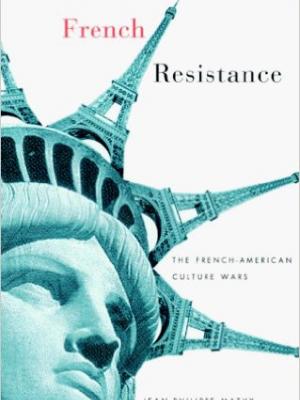
Vive la difference? Almost as soon as Foucault, Derrida, and Lacan began to captivate American academics, naysayers began to bemoan the effects of French theory on American thought. French critics, on the other hand, have made short shrift of what passes for intellectual life in America. French Resistance gets to the heart -- and the history -- of these vexed French-American relations. Consistently illuminating and often polemical, the book focuses on recent transatlantic debates over critical theory, national identity, and multiculturalism.
Starting from well-publicized controversies such as the bicentennial of the French Revolution, the 1989 Affair of the Veil, or the more recent Sokal Affair, Jean-Philippe Mathy looks at how each national tradition has represented the other, and how different conceptions of liberalism, democratic pluralism, and republicanism figure in these representations.
French Resistance takes exception to the commonplace opposition between a pluralist American model and an intolerant, centralized French one. At the same time, it places this rhetoric of incompatibility in the context of the long history of French and American controversies going back to the days of the French Revolution. Rather than oppose France and the United States as incomparable and incompatible regimes of nation building, this book argues that the two countries face similar challenges and mobilize comparable, if not identical, philosophical and political resources when it comes to closing the gap between their republican-democratic principles and national histories of oppression and persecution of individuals and groups on the basis of ethnicity, religion, national origin, and pastcolonial status.